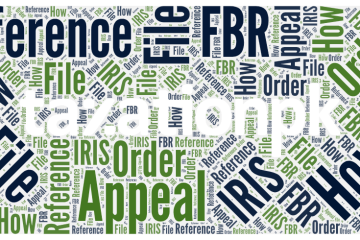Receiving a tax assessment notice can be a daunting experience for individuals and businesses in Pakistan. However, it’s important to remember that you have the right to appeal an unfavorable tax assessment if you believe it is incorrect or unfair. In this comprehensive guide, we will delve into the different ways you can appeal a tax assessment in Pakistan. By understanding the process and leveraging the appropriate strategies, you can protect your rights and ensure a fair resolution.
Understanding Tax Assessments in Pakistan:
Before exploring the avenues for appeal, let’s briefly discuss tax assessments in Pakistan. A tax assessment is a formal determination made by the tax authorities regarding the amount of tax payable by an individual or entity. It takes into account the taxpayer’s reported income, deductions, and applicable tax laws. If you disagree with the assessment, you have the right to challenge it through the appeal process.
Ways to Appeal a Tax Assessment in Pakistan:
- Filing an Objection with the Tax Authority: The first step in challenging a tax assessment is to file an objection with the tax authority that issued the assessment. This typically involves submitting a written objection letter within the specified timeframe, providing detailed reasons for your disagreement with the assessment. It is crucial to clearly outline the grounds for objection, supported by relevant evidence and legal provisions.
- Alternative Dispute Resolution (ADR): In some cases, the tax authorities may offer alternative dispute resolution methods, such as mediation or reconciliation, to resolve the dispute outside of the formal appeal process. ADR provides an opportunity for negotiation and settlement discussions between the taxpayer and the tax authority. Consider exploring this option if you believe it could lead to a quicker and more satisfactory resolution.
- Appellate Tribunal: If your objection is rejected by the tax authority, you can further appeal the decision to the relevant Appellate Tribunal. The Appellate Tribunal is an independent body established to adjudicate tax disputes. Prepare a comprehensive appeal petition, including all relevant documents, and present your case before the tribunal. It is crucial to engage legal representation or tax experts to present your case effectively.
- High Court and Supreme Court: If you are dissatisfied with the Appellate Tribunal’s decision, you can escalate the appeal to the High Court and, eventually, to the Supreme Court. The appellate courts will review the case based on legal grounds, ensuring proper application of tax laws and procedural fairness. Engaging experienced legal professionals is highly recommended for representing your case at this level.
Tips for a Strong Appeal:
- Thorough Research: Before filing an objection or appeal, conduct extensive research to understand the relevant tax laws, regulations, and precedents. This will strengthen your arguments and enable you to present a compelling case. Seek guidance from tax professionals or consult reputable sources to ensure accuracy.
- Document and Evidence Preparation: Compile all relevant documents, including financial statements, tax returns, correspondence with the tax authorities, and any supporting evidence for your objections. Ensure your documentation is organized, complete, and accessible to support your claims.
- Professional Representation: Consider engaging qualified tax professionals, such as tax consultants or legal experts specializing in tax matters. They possess the knowledge and expertise to navigate the complex appeal process and present your case effectively.
- Timely Compliance: Adhere to all procedural requirements, including filing deadlines and documentation submissions. Failure to comply with timelines or procedural formalities may result in dismissal of the appeal. Stay organized and keep track of important dates throughout the appeal process.
Conclusion:
Appealing a tax assessment in Pakistan is a legitimate right for taxpayers who believe they have been unfairly assessed. By understanding the appeal process, conducting thorough research, and engaging qualified professionals, you can navigate the complexities and increase your chances of a favorable outcome. Remember to document your objections, gather evidence, and comply with procedural requirements at each stage of the appeal. By doing so, you can protect your rights, ensure fairness, and contribute to a transparent and efficient tax system in Pakistan.







